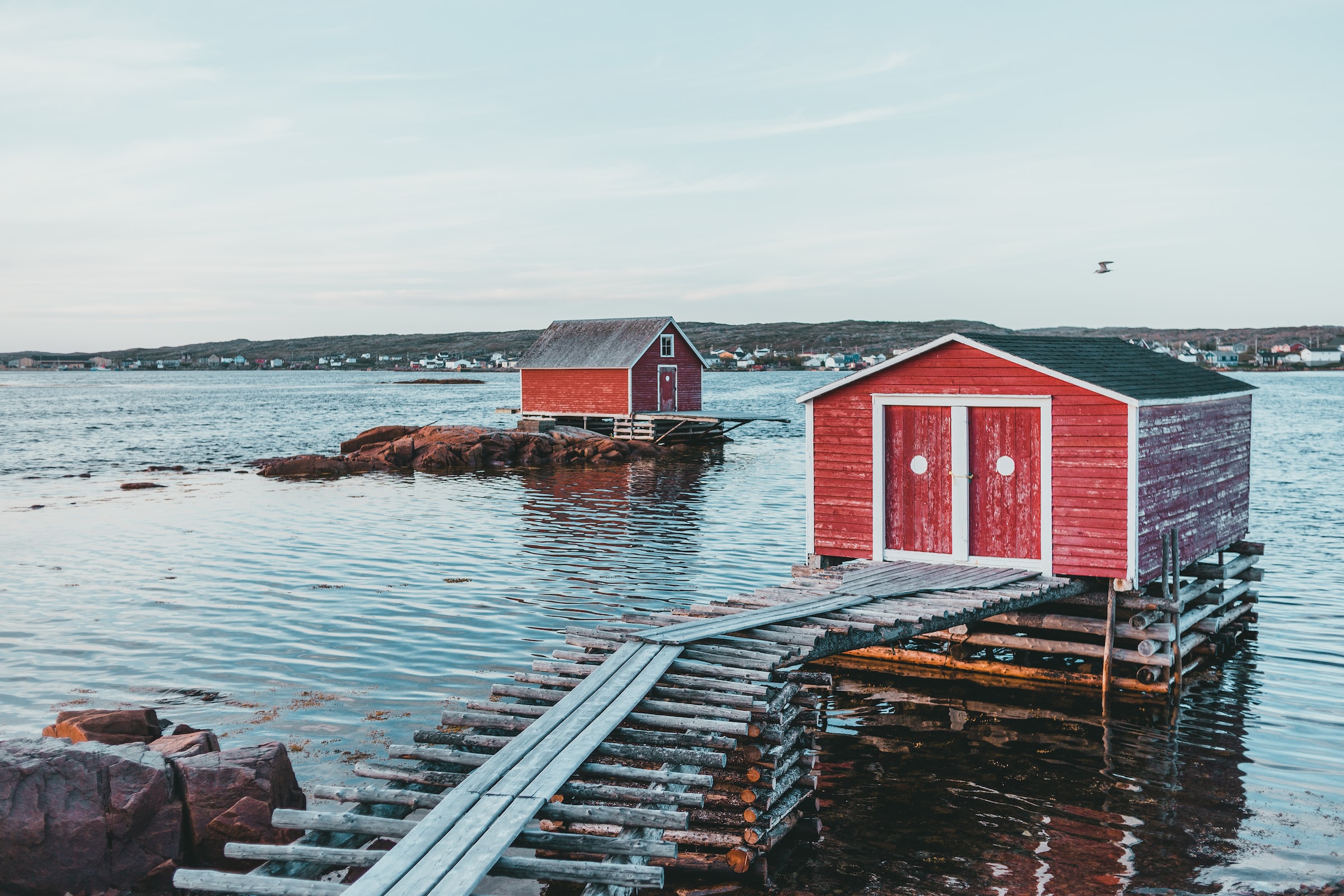Why have the MBI Project in Newfoundland?

Explaining why the MBI Project is based in Newfoundland
Photo Source: Mclean, E. (2021). Published on unsplash.com.
Historically, the ocean-based industry has formed the economic backbone of coastal, remote, and rural regions. This is especially true in Newfoundland and Labrador, where the fishing industry attracted local and international fishing fleets for centuries before the resulting near extinction of cod forced the Canadian government to shut down the fishing industry in 1992. Many coastal and rural communities in Newfoundland and Labrador have still not recovered economically, and the resulting outmigration and population decline makes their future uncertain.
The overall trend for rural Newfoundland and Labrador is for industries and services to increasingly concentrate in fewer communities. Many communities are challenged by the outmigration of youth and skilled workers, low rates of participation in entrepreneurship opportunities, food insecurity, and high incidences of chronic diseases. Areas involved in aquaculture, the shellfish industry, mining, forestry, and tourism, have the potential to solve these interconnected issues and be sustainable into the future. There is untapped potential in these ocean-based economies that can be harnessed with the use of innovative technologies based on boundary-pushing research and create sustainable socio-economic growth in the region.
The MBI project is a partnership between coastal, rural, and Mi’kmaq Communities across three regions on the Western portion of the Island of Newfoundland (Bay St. George, Bay of Islands, and Northern Peninsula). The knowledge and guidance that these partners provide is crucial to the project’s success, as we collaborate and co-develop sustainable, innovative, marine-based entrepreneurship opportunities and technologies for local industries and community-based organizations.
As we investigate the potential for innovation using these marine biomass sources, we will carefully consider not only their economic value, but also their cultural, spiritual, and social value in evaluating potential opportunities. We recognize that cultural sustainability and healthy populations are integral to resilient rural regions and that eco-innovation is key to the economic resilience of these communities. To this end, the MBI project employs a collaborative research approach that integrates natural sciences with social sciences and “Western” or scientific knowledge systems with equal validation and inclusion of Mi’kmaw knowledge systems. Through Two-Eyed Seeing, a Mi’kmaw conceptual framework for research coined by Elder Albert Marshall, this research aims to recognize and validate Mi’kmaw knowledge systems alongside Western scientific investigation.
There is a demand for novel marine products, but a lack of capacity and capital to invest harms innovation. Efficient utilization of marine biomass is also key to economic sustainability. The project is particularly interested in fish species, aquatic plants, and materials that connect the ocean with the land. We will work in partnership with community partners and enterprises to develop products that are sustainable, globally competitive, economically, and technically feasible with existing local infrastructure. Products will have applications in agriculture, food, nutraceuticals, biomaterials, biosensors, aquaculture feed, and health industries. The processes and products developed will not only be innovative but also “green” – minimizing energy requirements and waste generated in the process and maximizing the value of products.
The project provides opportunities for coastal rural regions to represent hubs of innovation for marine-based secondary products, to play a role in diversifying the marine-based economy, and to create opportunities to drive rural, coastal or Indigenous community sustainability using the outputs from evidence-based research. Products and processes developed, and knowledge generated will have a regional impact but be nationally and globally exportable.
